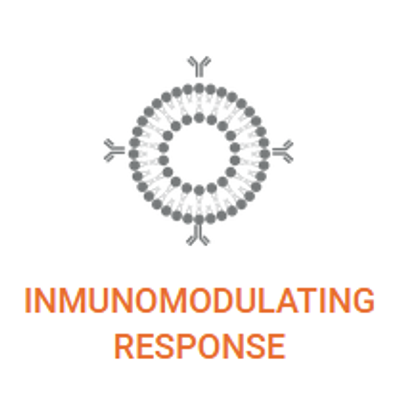

- Home
- Companies
- Nanovex Biotechnologies
- Applications
- Liposomes - Hollow Nanospheres for ...

Liposomes - Hollow Nanospheres for Immunomodulating Response - Medical / Health Care
The increase or decrease of a natural immune response to obtain a therapeutic result is the basis of immunotherapy. It holds great promise for the treatment of autoimmune diseases, cancer, and the prevention of transplant rejection.
During the onset of autoimmune diseases, the immune system of the host detects an endogenous substance as a threat and becomes a target. For example, β-cell proteins in Type 1 diabetes, myelin peptides in multiple sclerosis, healthy skin cell proteins and lipids in psoriasis and citrullinated proteins in rheumatoid arthritis. Phosphatidyl serine liposomes encapsulating autoantigens have been extensively used for their safe presentation to dendritic cells and stimulate immune self-tolerance. Other approaches include the encapsulation of immunosuppressive drugs or siRNA or oligonucleotides in substitution for the autoantigen.
This tactic can also be translated to the prevention of transplant rejection instead of the administration of immunosuppressives which has many risks associated including infections and cancer. The promotion of self-tolerance has not only been safer but also more successful in the long term for transplant patients.
On the contrary case is cancer, in which the body is inactive towards tumoral cells, and the immune response need to be stimulated. Some strategies include the encapsulation in liposomes of tumor associated antigens (TAAs) or nucleotides encoding for TAAs to activate a CD8+ T-cell response.
